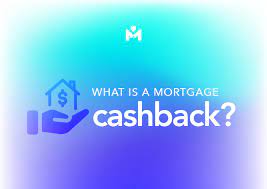Types of Cash Back Mortgage Loans
A cash back mortgage may sound like a good deal, but it could turn out to be a nightmare for you. Before signing up for a cash back mortgage you should make sure that you understand how it works. Most cash back mortgages are unsecured loans where the lender does not require any type of collateral to secure the loan. Some lenders will require the borrower to put something like a car or home in collateral before they will issue a cash back mortgage.
Cash back mortgages are popular for people who need to make repairs on their home or who want to do extensive renovations on their home. The good thing about a cash back mortgage, is that the interest rate is usually very low as well as the closing costs. Many lenders offer cash back mortgage deals with low interest rates and no closing costs. This cash back mortgage can help you make your payments without having to worry about your monthly mortgage payment anymore.
Before signing up for a cash back mortgage you need to understand that there are closing costs associated with this type of mortgage. The interest rate, cash down payment, and loan fees are usually all added together and are considered closing costs. If you are going to use the cash that you receive from the cash back mortgage to pay for your repairs or renovations, you should only do so once you are done.
Some cash back mortgages may offer you a lower interest rate compared to your current interest rate. However, the cash that you will receive is not tax-free. In most cases, the interest on the cash that you are receiving is tax-deductible. You can deduct the interest that you pay on your deductible basis when you file your taxes. It is important to remember that you can only claim a maximum of 50% on the interest that you pay for this type of mortgage.
The fixed mortgage rate is another type of cash back mortgages that offers higher interest rates. This comes in at a variable mortgage rate after the introductory period expires. This variable rate will remain at the same level for the entire duration of the mortgage. While the interest rate may be higher than the fixed rate, this is still a good choice for borrowers who want a longer term with lower interest payments. One disadvantage to the fixed rate is that it does not allow borrowers to borrow any more money after the introductory period has expired.
Finally, some lenders may offer borrowers a discount on their cash back mortgage. The discount is actually a fee that is subtracted from your principle amount at the time that you close your account with the lender. While many borrowers appreciate having this fee eliminated, some people do not like having this extra cash tied up in their account. It is important to talk with your lender to see if you qualify for a rebate on your mortgage loan.


